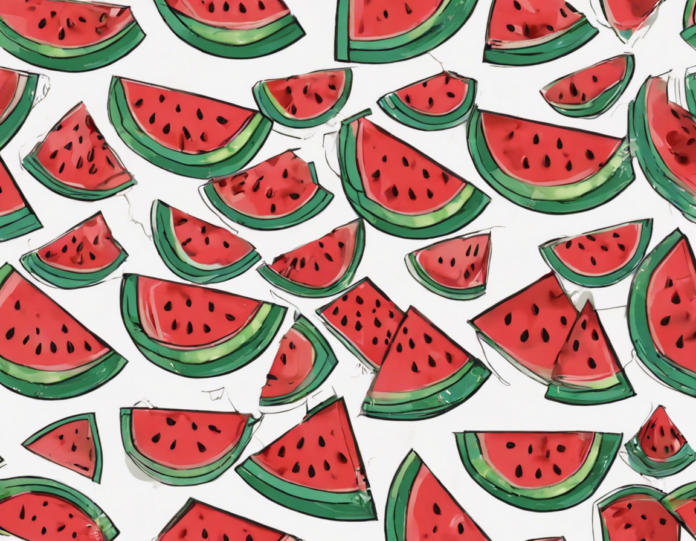Introduction
Watermelons are a delicious summertime treat loved by many. There’s nothing quite like biting into a juicy, sweet slice of watermelon on a hot day. If you’re interested in growing your own watermelon patch, you’re in for a rewarding experience. However, growing watermelons can be a bit tricky if you’re not familiar with the process. In this article, we’ll provide you with five essential tips to help you grow a successful watermelon patch.
Choosing the Right Variety
The first step in successfully growing watermelons is choosing the right variety for your growing conditions. There are many different types of watermelons, each with its own unique flavor, size, and growing requirements. Some popular watermelon varieties include Sugar Baby, Crimson Sweet, and Charleston Gray. Consider factors such as space, climate, and taste preferences when selecting a variety.
Preparing the Soil
Watermelons thrive in well-draining, fertile soil with a pH level between 6.0 and 6.8. Before planting your watermelon seeds or transplants, prepare the soil by incorporating plenty of organic matter, such as compost or aged manure. This will help improve soil structure, fertility, and moisture retention. Additionally, ensure that the soil has warmed to at least 70°F before planting to promote germination and growth.
Providing Adequate Sunlight
Watermelons are sun-loving plants that require full sun to thrive. Choose a planting site that receives at least 6-8 hours of sunlight per day for optimal growth and fruit production. Lack of sunlight can result in poor fruit set and underdeveloped melons. If you’re growing watermelons in a cooler climate, consider using row covers or black plastic mulch to help retain heat and promote earlier ripening.
Proper Watering and Fertilization
Watermelons have high water requirements, especially during the flowering and fruit development stages. To ensure healthy growth and ample fruit production, water your watermelon plants consistently, keeping the soil evenly moist but not waterlogged. Consider using a drip irrigation system or soaker hoses to deliver water directly to the roots and reduce the risk of fungal diseases.
In addition to adequate watering, watermelons benefit from regular fertilization throughout the growing season. Start by incorporating a balanced fertilizer into the soil before planting, then apply a side dressing of nitrogen-rich fertilizer when the vines begin to run. Avoid over-fertilizing, as this can result in excessive foliage growth at the expense of fruit development.
Pest and Disease Management
Watermelons are susceptible to a variety of pests and diseases that can hinder plant growth and reduce fruit quality. Common watermelon pests include aphids, cucumber beetles, and squash bugs, while diseases such as powdery mildew and anthracnose can also pose significant challenges.
To manage pests, practice crop rotation, use row covers, and handpick insects when possible. Neem oil or insecticidal soap can be effective for controlling pests in organic gardens. For disease prevention, avoid overhead watering, thin out crowded plants to promote air circulation, and remove any infected plant material promptly.
FAQs
Q: How long does it take for watermelons to mature?
A: The time it takes for watermelons to mature varies depending on the variety, but most watermelons are ready to harvest 70-90 days after planting.
Q: How often should I water my watermelon plants?
A: Watermelon plants require consistent moisture, so aim to water them deeply 1-2 times per week, depending on weather conditions.
Q: Can I grow watermelons in containers?
A: While watermelons prefer to sprawl and require ample space, you can grow smaller varieties in large containers with proper support and care.
Q: How do I know when watermelons are ripe and ready to harvest?
A: Pay attention to the color, size, and sound of the watermelon. A ripe watermelon will have a dull surface, a creamy yellow spot where it rested on the ground, and produce a deep, hollow sound when thumped.
Q: Do watermelon plants require pollination to set fruit?
A: Yes, watermelon flowers require pollination to set fruit. Bees and other pollinators play a crucial role in this process, so ensure a diverse and healthy garden ecosystem to support pollination.
Growing a successful watermelon patch requires careful planning, proper care, and patience. By following these essential tips and guidelines, you’ll be well on your way to enjoying a bountiful harvest of sweet, refreshing watermelons in your own backyard.

